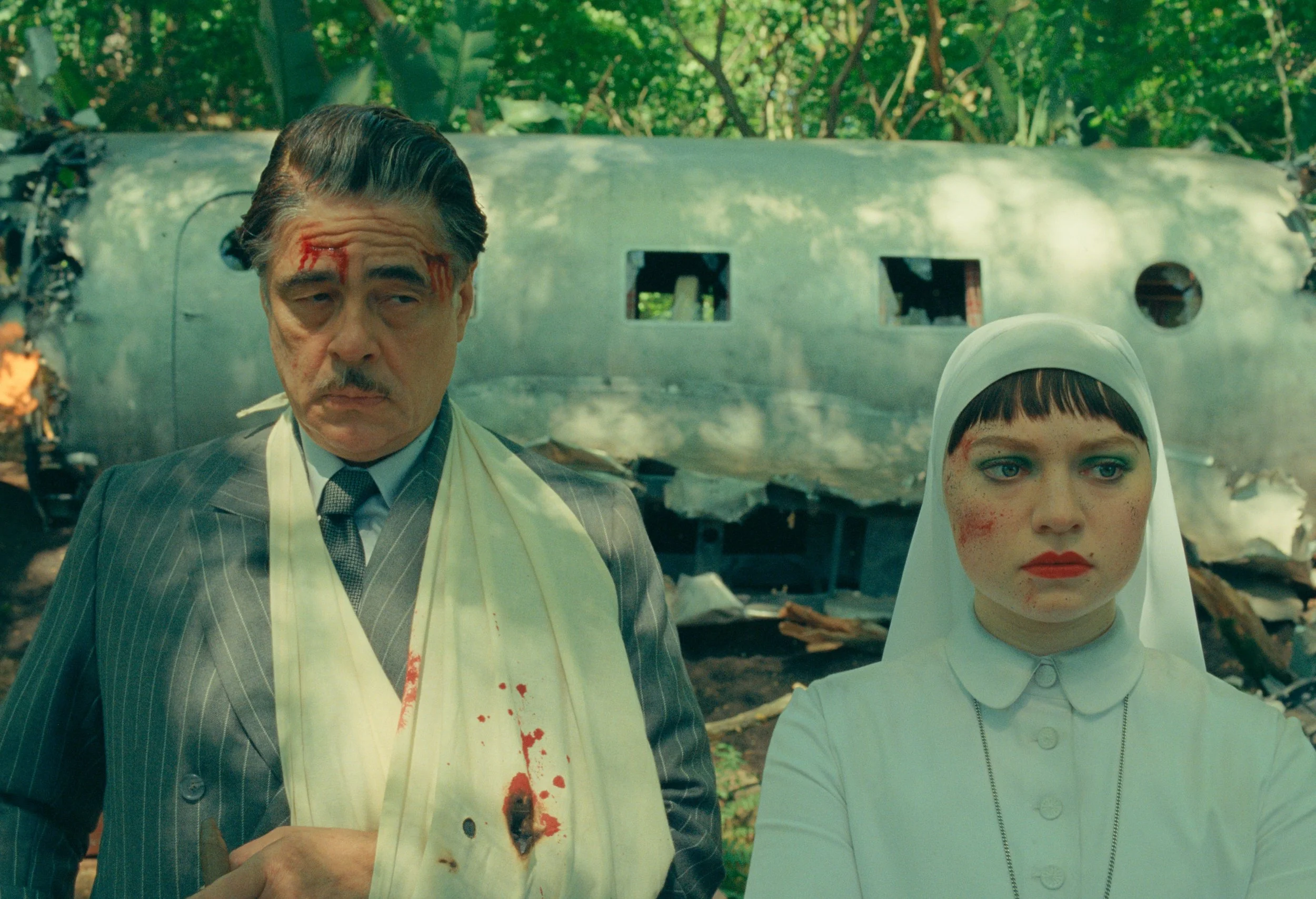Cannes: “The Phoenician Scheme” is Too Neat for the Messy Humanity at its Heart
Wes Anderson movies are an experience. They’re a fast-talking rollercoaster featuring some of Anderson’s favorite actors. His latest, The Phoenician Scheme, is no different. Some familiar faces return (Willem Dafoe, Scarlett Johansson, Jeffrey Wright), and Anderson welcomes some new actors into his troupe (Mia Threapleton, Riz Ahmed). Ultimately, The Phoenician Scheme falls into the same traps as Anderson’s recent outings, where the plot is too sprawling and the cast list too long to reach the heights of his earlier achievements.
Zsa-zsa Korda (Benecio del Toro) is dying. He’s getting older, and there are people constantly out to get him. He’s a wealthy man who has burned bridges all around the world with his standoffish attitude. As the threats come closer to succeeding, Korda decides he needs to get his ducks in a row to ensure his legacy. Despite having nine young sons he could teach his business to, Korda lands on his daughter, Liesl (Threapleton), as the rightful heir. Liesl has two hesitations. The first: she’s a nun who’s due to take her vows at the end of the month. The second: she believes Korda is responsible for killing her mother. Despite these reservations, Liesl agrees to accompany Korda on his travels to ensure that his Phoenician business scheme will come to pass.
Courtesy of Focus Features
With Anderson, it’s never a question of his technical prowess. The Phoenician Scheme marks his first collaboration with Bruno Delbonnel as the director of photography, but by this point in Anderson’s career, his visual language seems to be second nature. The opening credits unfold as nurses tend to Korda’s wounds and it’s a perfectly choreographed dance. Such a pleasing feast for the eyes, just like the rest of the film. Anderson has never skimped on creating a visual treat, but where The Phoenician Scheme and Anderson’s other recent works stumble is in allowing the messiness of humanity to permeate the beautiful still-life scenes he’s created. As well-rehearsed as these actors and the entire film crew are, something essential is missing. The technical abilities of Anderson and his team are, on their own, compelling for a good hour, but then the hollowness sets in. Who are these characters really? What do they want? Who do they care for? We know the answers because another Anderson trademark is over-exposition in dialogue, but we’re missing the feeling behind the words.
The Grand Budapest Hotel remains Anderson’s best work. It perfectly combines his camerawork with the right amount of heart to create a deeply emotional film. There are glimmers of his ability to blend two at-odds worlds together in The Phoenician Scheme, especially when it comes to Korda and Liesl’s relationship, but that tends to take the backseat to the globetrotting hijinks. As fun as it is to see Tom Hanks play basketball with Benecio del Toro in a tunnel, it can only sustain the audience for so long. The Phoenician Scheme proves that Anderson is still a mastermind behind the camera, but could benefit from letting his heart out onto his sleeve.
support your local film critic!
~
support your local film critic! ~
Beyond the Cinerama Dome is run by one perpetually tired film critic
and her anxious emotional support chihuahua named Frankie.
Your kind donation means Frankie doesn’t need to get a job…yet.
Follow me on BlueSky, Instagram, Letterboxd, & YouTube. Check out Movies with My Dad, a new podcast recorded on the car ride home from the movies.

